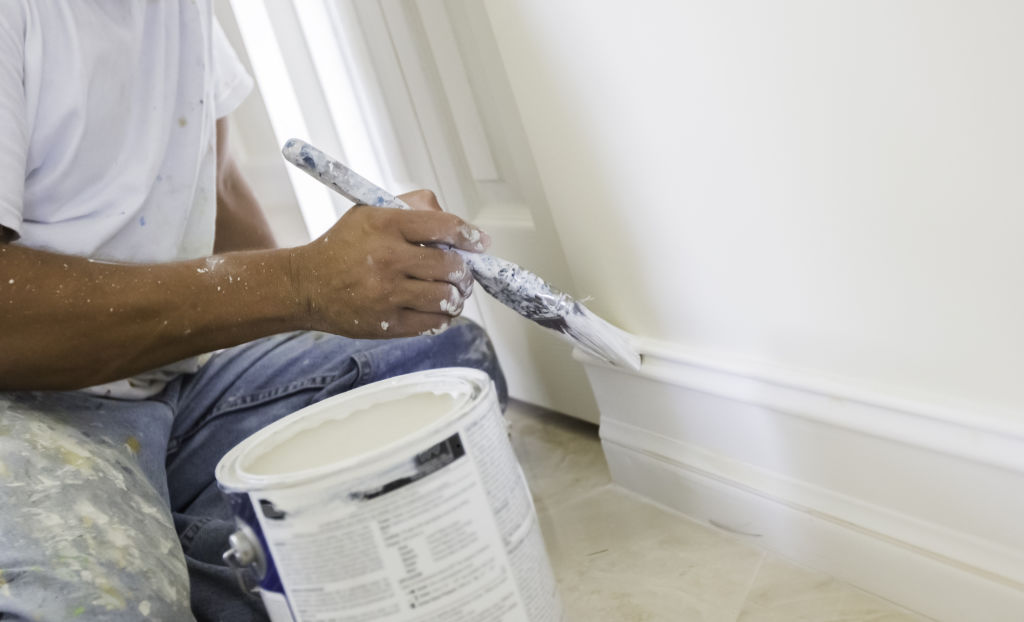She was an accountant, so she should have known better. But, looking to change careers and become an opera singer, she claimed tax deductions of more than $20,000 for opera dresses and a trip to Italy before she even sang her first note.
It’s one of Australian Taxation Office (ATO) Deputy Commissioner Tim Loh’s favorite examples of people making catastrophic errors on their tax claims, either unknowingly or deliberately.
But, similarly, homeowners regularly make claims for things they are clearly not entitled to at the end of each financial year, he says, and forget to make claims for many items they are entitled to.
“We encourage rental property owners and their registered tax agents to be especially careful this tax season and review their records before filing,” Loh said.
“We are particularly focused on addressing common errors and supporting taxpayers and registered tax agents to file their claims correctly this year.”
It’s hard work. The ATO estimates that approximately 90 per cent of rental property owners make errors on their tax returns.
“They believe the tax gap between what people paid and the amount of taxes they should have paid is about $9 billion,” said Mark Chapman, director of tax communications at tax services firm H&R Block.
“The level of underpayments is enormous. Therefore, they are looking very closely at homeowners’ tax claims, especially in the case of investment properties.
“Some people know what they are doing is wrong, but they do it anyway. Others don’t realise they are making a mistake, so it is important that, at the end of the year, everyone is much more aware of which deductions they can claim and which ones they cannot.”
With that in mind, here are some of the biggest mistakes homeowners can make when filing taxes that could not only put you in the ATO’s crosshairs, but could also result in you racking up a tax bill. greater than necessary.
1. Not being prepared in advance to file taxes
Prepare for the end of the financial year by gathering all your financial information well in advance, advises Patrick Bush, National Head of Property Managers at Different.
“The more information you can provide, the better your refund will be,” he said. “Likewise, missing important information can cost you a lot of money. Additionally, the faster you can provide all the relevant information, the faster the refund will be.
“You should create a file to put everything in right now, if you don’t already have one!”
2. Claim of interest on the family home
Some people, quite mistakenly, try to claim interest on the mortgage of their family home. That’s not allowed, Chapman says. However, it is perfectly valid to claim interest on a loan used to purchase an investment property against the income.
“But if there are two people who jointly own the property, you can’t take deductions like interest against the person with the higher income,” he said.

Loh cautions rental property owners to understand how to properly prorate loan interest expenses, especially when part of the loan was used for private purposes or was refinanced for some private purpose.
“If your loan also includes a private expense, such as a new car or a trip to Bali, you can only claim an interest deduction for the part related to the production of your rental income,” he said.
The ATO has recently implemented a loan data matching program for residential investment properties.
3. Overlooking Investment Property Expenses
There are a lot of expenses you can claim against the income from an investment property, Chapman says. Gardening, security costs, cleaning – all of this is potentially claimable.
It is also possible to claim many, such as next year’s insurance premium or a subscription to a real estate magazine, this year.
If there are outstanding repairs that need to be made, or if you want to improve the property, do it sooner rather than later, Bush urges, so you can claim it at the end of this financial year.
But many people, Loh advises, claim excessive expenses or demand improvements to their private property.
4. Incorrectly claiming property repairs and improvements
Most repairs or improvements to an investment property can be claimed, except if they are work to rectify defects in a property when it was first purchased. These are not deductible, although they can be charged against capital gains tax (CGT) when the home is sold.

“During the first 12 months, if you claim a deduction for a repair, you need to analyze whether it is an initial repair or whether it is truly deductible,” Chapman said.
5. Claiming the wrong work-from-home benefits
Expenses associated with working from home can be claimed at a fixed rate set by the ATO.
But the costs of running a business from home, or if you rent out part of your home such as your office, will still have capital gains tax implications, Chapman said.
With so many people’s working conditions changing, with many now working less from home and more days in the office, it’s important to make sure your claim is up to date, Loh said.
“To claim work-from-home expenses as a deduction, you can use the actual cost or the revised flat rate method, as long as you meet the eligibility and recordkeeping requirements,” he said. “Keeping good records will give you the flexibility to choose the right method that suits your circumstances and gives you the best deduction this tax time.”
6. Forget about property depreciation
“This means you can claim for wear and tear on a building, which helps reduce taxable income,” Bush said.
“But you have to make sure you provide all receipts and expenses incurred, so you need to collect them throughout the year. A common mistake is not including this when making the claim, and people can lose thousands of dollars this way.”
7. Not hiring a tax expert to help you
A major complication is that tax laws and regulations can change each year and can also vary between different states, Bush says. It is for those types of reasons that it may be advisable to hire a professional tax advisor.
Buyer agency Cohen Handler founder Simon Cohen, who is also H&R Block’s property ambassador, says hiring a tax expert to help you can be vital.
“You need a professional to help you when it comes to investment properties, especially since there are many tax benefits you should be aware of,” he said.
“Likewise, we have to make sure we don’t get screwed with taxes. Many people miss out on refunds because they don’t know what they can claim. Then they are constantly surprised by things like land tax, which many do not take into account, especially when they are new investors starting their investment journey and are not yet experts.”
8. Improper claim for vacation home expenses
Many people claim deductions for vacation homes, including times when they use the home themselves or rent it at a reduced rate to family or friends.

“A lot of people claim expenses for periods when they are there or when they keep it empty,” Chapman said. “But deductions can only be claimed in relation to a property when it is available to rent. It’s the same when you lend it to people you know for less money. You have to be very careful”.
9. Misunderstanding about capital gains tax
This tax comes into effect when you sell an investment property or when you sell your own home if it has been used to generate income, such as renting rooms on Airbnb or Stayz, or running a home business.
Capital gain or loss must be calculated accurately and owners must keep records of the income-producing period and the portion of the property used to produce income.
“Don’t fall into the trap of thinking we won’t notice if you sell an asset for a profit and don’t report it,” Loh said.
10. Putting taxes in the “too hard basket”
The ATO has a wealth of information on its website to help landlords determine what they can (and cannot) claim at tax time. They are also asking people to get in touch if they are falling behind on their taxes and risk incurring penalties.
“Let us know as soon as possible or chat with your registered tax agent so we can work with you to find a solution,” Loh said. “Don’t bury your head in the sand.”
This year, perhaps more than any other, this is critically important, Bush believes. “With the rising cost of living and rising interest rates, there is a lot of pressure on homeowners, so they really need to maximize their income and alleviate the pressures,” he said.



